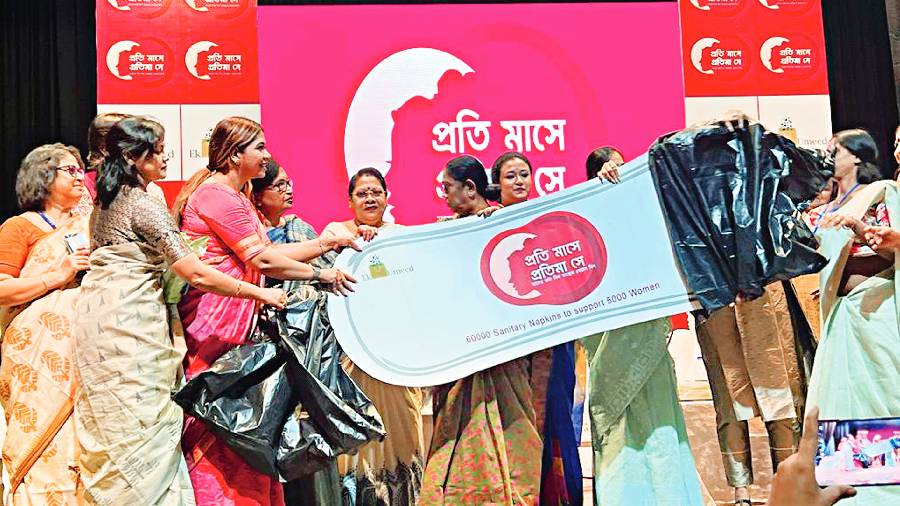Buying a sanitary napkin is not a matter of shame and there is no need to cover it in black plastic, was the message sent across to a section of women from homes where it is a taboo even to speak about menstruation.
Women from shanties of Alipore, Chetla, Kalighat, Kidderpore were provided with sanitary napkins for one cycle to raise the awareness about menstrual hygiene and to take away the stigma of talking about it.
As many as 60,000 sanitary napkins were provided to 5,000 women, many of whom work as domestic helps, daily wage labourers who use unhygienic alternatives not knowing they are putting their health at risk.
“The idea is to raise their awareness about the use of sanitary napkins and eventually develop a habit in them to buy rather than using unhygienic alternatives,” said Priyadarshini Hakim, who is doing this social campaign besides having a full time job.
Hakim said that many of these women work but they do not keep aside any money for themselves or their own hygiene. Rather they use everything for their family or it is taken away by their husband, she added.
Hakim organised an awareness and distribution session on Saturday in association with an organisation Ek Packet Umeed on occasion of the World Menstrual Hygiene Day at Ahindra Mancha in Chetla.
The initiative by Hakim, Proti Mashe Protima Shey, aims to break the taboo around menstruation by organising continuous community awareness programmes.
At Ahindra Manch on Saturday Hakim,, the guests and the underprivileged women tore the black plastic of a sanitary napkin, symbolic of taking away the taboo of talking about menstruation.
The social stigma is not only prevalent in the underprivileged sections of society but also among the middle or upper middle class of society, said Hakim.
“Even in office a woman would say that she is not feeling well rather than saying she is menstruating. It does not come as naturally for her as she would say if she was having a headache or running a temperature. We have to fight against this social stigma as well,” said Hakim.
